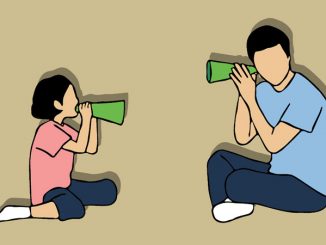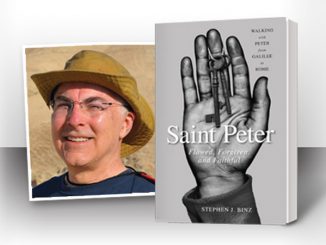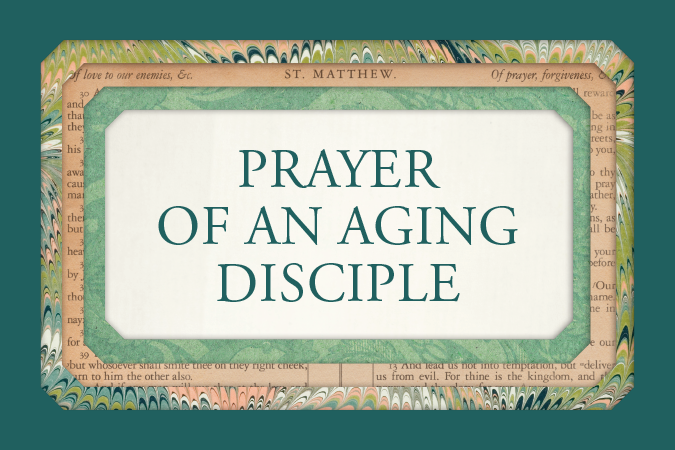
In the Scriptures, we see examples of disciples at different stages of their faith journeys. Through the story of Jesus and the woman of Samaria (John 4:1–42), we explored the early stages of the discipleship journey. Later in the Gospel of John, we hear the story of Jesus restoring sight to a man born blind. (John 9:1–41) This story represents the next stage in the journey of discipleship.
In this story, a man who was blind since birth experiences a profound conversion, which leads to his physical and spiritual healing. At the heart of the story is the issue of sin and accountability. Indeed, as this story opens, we see people attempting to assign blame for the man’s blindness. “Rabbi,” the disciples ask, “who sinned, this man or his parents, that he was born blind?” (John 9:2) Jesus informs them that neither the man nor his parents sinned but that the man was born blind so God’s ways might be evidenced in him. Jesus puts a paste of mud upon the man’s eyes and instructs him to wash it in the Pool of Siloam. The man does as commanded and is healed. When he attests to his healing, the Pharisees ridicule and doubt the man and his healing. They eventually throw him out of the Temple. When Jesus hears this, he summons the man and asks him, “Do you believe in the Son of Man?” (John 9:35) The man responds, “Lord, I believe,” and falls at the feet of Jesus and worships him. (John 9:38) His healing—both physical and spiritual—is complete.
This story offers some important lessons about discipleship.
Healing is inextricably linked to conversion.
The first thing that Jesus did after the Resurrection was to reveal his wounds to the disciples. We can be a balm for those who are tired, weary, and struggling. During a Mass at Casa Santa Marta on February 5, 2015, Pope Francis described the Church as a “field hospital” that requires “healing the wounds of the heart.” As a Church, we must reclaim this healing dimension in our own lives and our parishes so that we can warm the hearts of those who have been wounded.
Jesus is the instrument of healing.
The blind man did not initiate his healing. Jesus, the Divine Physician, did. “By his wounds you have been healed.” (1 Peter 2:24) We may be tempted to dismiss people who are not living according to our standards. When we’re judgmental, we are apt to treat people rudely. St. Ambrose of Milan (c. 340–397) reminds us that “no one heals himself by wounding another.” Other teachers point out that pain that is not transformed through patience, prayer, and consideration for others is often transferred to others. We can become a fountain of healing for others by offering encouragement and praying with them when the time is right.
We must confront our own sin to grow continually as disciples.
In the story of the man born blind, darkness and blindness are metaphors for sin. The formerly blind man turned away from the darkness of unbelief toward the glorious light of the Son of God. When we allow Jesus to heal us, just as the blind man did, our lives become clearer than ever. We become a new person in Jesus Christ. But just as happened for the man in the story, as soon as his sight was restored, life became more difficult, because people doubted his healing. Similarly, when we set aside habitual patterns of sin, people may doubt our conversion. No one said that the path of discipleship would be easy.
If you are living in darkness today, there is no reason why you cannot learn from this story. Jesus invites us all to continually confront our blindness, meaning the sins and obstacles that prevent us from living as he did. Otherwise, we will never be able to see our pain, which increases the risk that we will transfer that pain to others. Will you allow Jesus to wash you clean and receive your sight today?





Be the first to comment